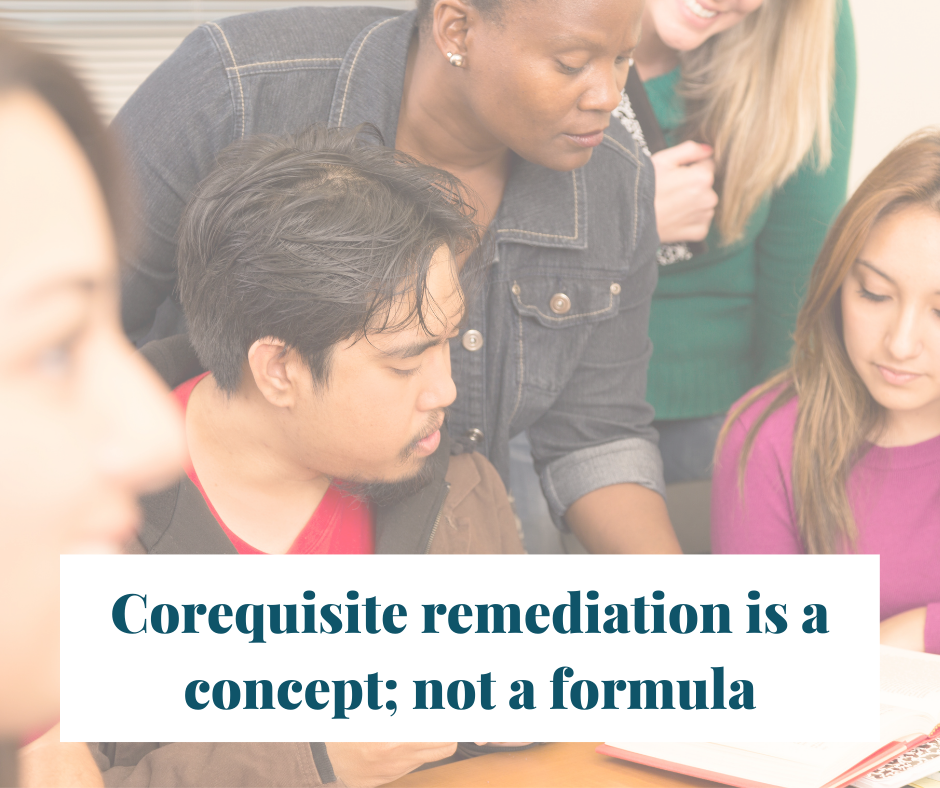
In the
Weeds
A practitioner's perspective on math, education & change.
The one thing you must have for developmental math redesign success
In this webinar, Kathleen Almy will share tangible aspects of making redesigns successful based on years of experience with small and large redesigns including legislative reform.
Getting started with co-reqs
In this FREE webinar, we will share advantages of corequisites (or coreqs) over other models of support for students who may struggle with college-level math.
Corequisite remediation is a concept; It’s not a formula
Currently, multiple states have mandates or laws that affect the number of remediation colleges can offer and the placement approaches used. My state (IL) has legislation, but there's still a lot of choice for colleges within it.
With change comes discomfort
When it comes to improving something, such as your health, a policy, or a math program, assessment is always an integral part of the process. As you assess, know that it's common with any substantive transformation to feel a bit of discomfort along the way.
Math Redesign: Working with administrators
If you're a faculty member and you'd like to address a problem, pause before approaching your administrator. Administrators are incredibly busy. They're usually scheduled to the minute the entire day with meetings and struggle to find time in the day for that work. So many will work evenings and weekends regularly. It's a grind that lasts 12 months of the year.
Boosting student momentum in a distracted world
I can’t imagine being a college student today. Not only are there many distractions, such as personal and professional setbacks and opportunities, but there are pandemics, world events, and so forth. It’s no shock, especially with everything happening around them, that enrollment is down, and colleges are struggling to fill seats.
Math Redesign: evolution - Not Revolution
If you worked on a math redesign of any kind last year and you didn't reach your goal, that's not unusual. Change with such considerable elements takes a lot of people, resources, and time. The secret is to just keep going. Redesign is an evolution, not a revolution.
Mental Health First Aid
Seventy-five percent (75%) of all mental illnesses begin by age 24. As instructors working with young adults, we may be the first ones to recognize the signs and symptoms of a developing mental illness. What will you see from someone who may be at the start of a mental illness?
Educational Access for All
By preparing our courses so that students with disabilities can overcome barriers to access, we are utilizing the Universal Design for Learning (UDL) guidelines. The purpose of this blog is to share some small changes you can make to the learning environment so that all students can participate without barriers, increasing equity and access to quality education.










